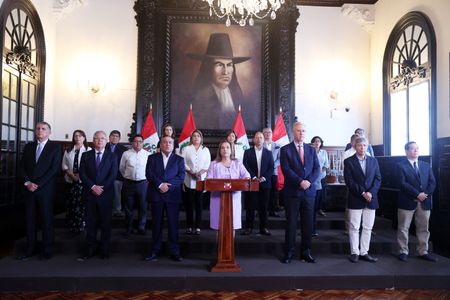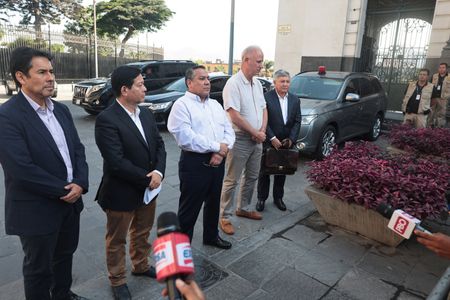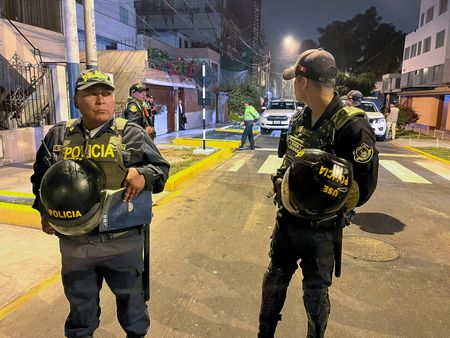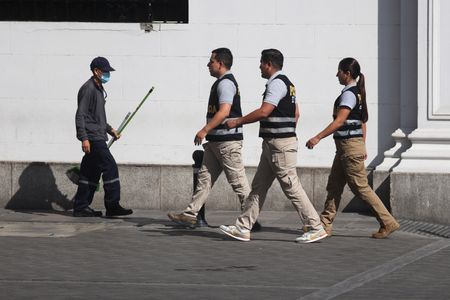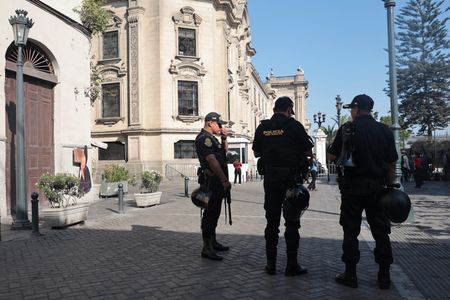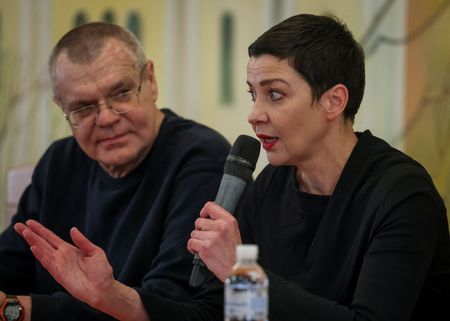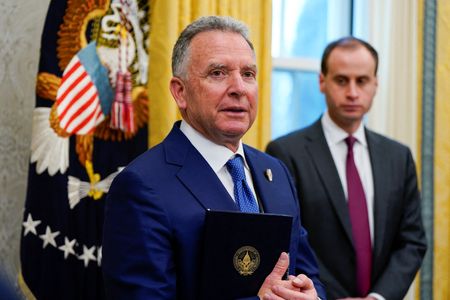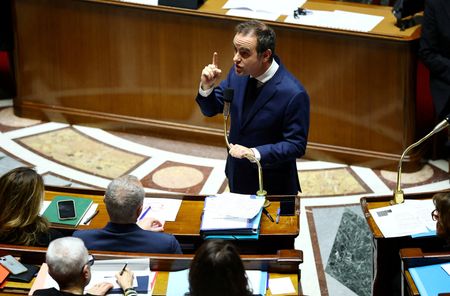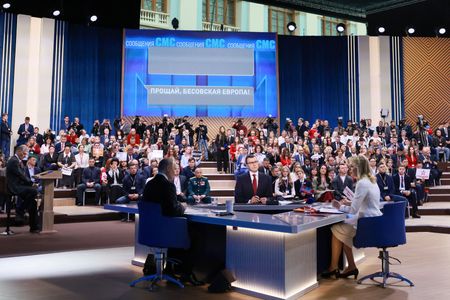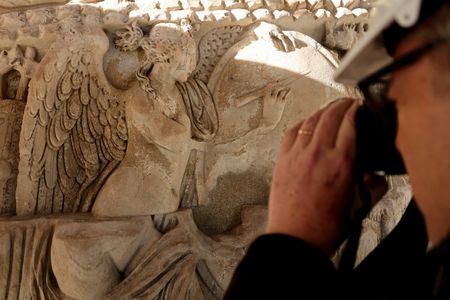By Marco Aquino
LIMA (Reuters) -Peruvian President Dina Boluarte on Saturday said she would not resign after her house was raided as part of inquiries into possible illicit enrichment and failure to declare ownership of luxury watches.
Some 20 officials from the public prosecutor’s office and 20 police raided Boluarte’s house on Friday night, and the palace on Saturday morning.
“I took office with clean hands and thus I will retire from the presidency in 2026,” she said at a press conference, calling the raids a “disproportionate” measure and “abusive.”
Boluarte’s house is located in the Lima district of Surquillo, a few kilometres from the palace where she works.
“Personnel from the palace provided all the facilities for the diligence requested,” the presidency said on social media platform X, adding that it was carried out “normally and without any incident.”
However, Peruvian Prime Minister Gustavo Adrianzen also criticized the raids.
“The political noise that is being made is serious, affecting investments and the entire country,” he wrote on X. “What has happened in the last few hours is disproportionate and unconstitutional actions.”
Two weeks ago, prosecutors began preliminary inquiries following a media report by internet program La-Encerrona that the president possessed several Rolex watches.
The inquiry intended to establish whether there were grounds for a formal investigation of the president.
Boluarte, in office since December 2022, has acknowledged that she owns Rolex watches, which she said she had bought with money she earned since she was young.
The prosecutor’s office had tried unsuccessfully last Wednesday to conduct a check of the watches at Boluarte’s office, but her lawyers said there was a clash of diary appointments and sought to reschedule the appointment.
The inquiry into Boluarte is the latest in a long history of probes into Peruvian presidents and senior officials.
(Reporting by Marco Aquino in Lima; Additional reporting by Natalia Ramos in Santiago; Writing by Frances Kerry and Stefanie Eschenbacher; Editing by Helen Popper and Bill Berkrot)

